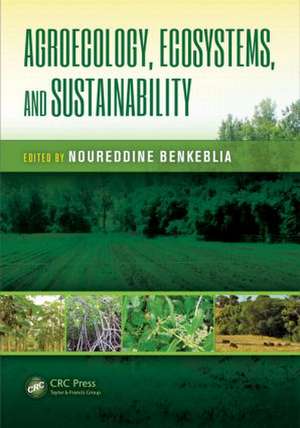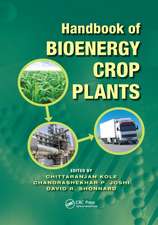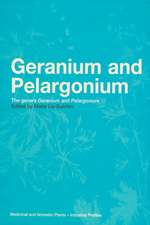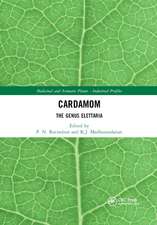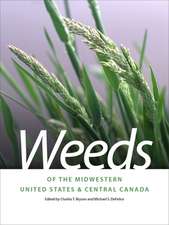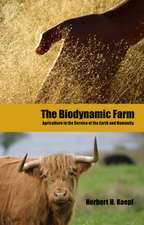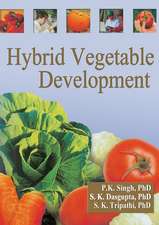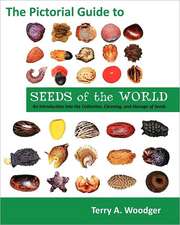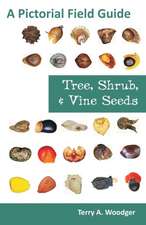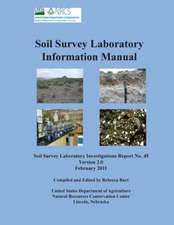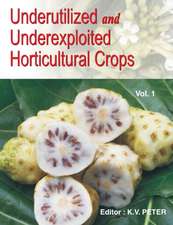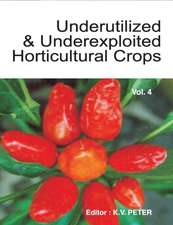Agroecology, Ecosystems, and Sustainability: Advances in Agroecology
Editat de Noureddine Benkebliaen Limba Engleză Hardback – 20 noi 2014
With contributions from experts from more than 20 countries, the book describes how to make the transition to modern agroecology to help the environment. It examines the global availability of natural resources and how agroecology could allow the world population to reach the goal of global sustainable ecological, agricultural, and food production systems. The book discusses important principles that regulate agroecological systems, including crop production, soil management, and environment preservation.
Making the link between theory and practices, the book includes examples of agroecology such as an interdisciplinary framework for the management of integrated production and conservation landscapes and the use of mechanized rain-fed farming and its ecological impact on drylands. An examination of how ecology and agriculture can be allied to ensure food production and security without threatening our environment, the text shows you how natural resources can be used in a manner to create a "symbiosis" to preserve ecological systems and develop agriculture.
| Toate formatele și edițiile | Preț | Express |
|---|---|---|
| Paperback (1) | 338.33 lei 43-57 zile | |
| CRC Press – 18 oct 2019 | 338.33 lei 43-57 zile | |
| Hardback (1) | 1287.54 lei 43-57 zile | |
| CRC Press – 20 noi 2014 | 1287.54 lei 43-57 zile |
Din seria Advances in Agroecology
- 8%
 Preț: 473.70 lei
Preț: 473.70 lei - 9%
 Preț: 1214.89 lei
Preț: 1214.89 lei - 9%
 Preț: 593.73 lei
Preț: 593.73 lei - 9%
 Preț: 601.85 lei
Preț: 601.85 lei -
 Preț: 362.74 lei
Preț: 362.74 lei - 14%
 Preț: 338.33 lei
Preț: 338.33 lei -
 Preț: 464.81 lei
Preț: 464.81 lei - 13%
 Preț: 338.33 lei
Preț: 338.33 lei -
 Preț: 430.37 lei
Preț: 430.37 lei -
 Preț: 475.88 lei
Preț: 475.88 lei - 8%
 Preț: 389.58 lei
Preț: 389.58 lei - 18%
 Preț: 1341.51 lei
Preț: 1341.51 lei - 18%
 Preț: 796.59 lei
Preț: 796.59 lei - 18%
 Preț: 1015.82 lei
Preț: 1015.82 lei - 18%
 Preț: 790.20 lei
Preț: 790.20 lei - 18%
 Preț: 1000.27 lei
Preț: 1000.27 lei - 28%
 Preț: 739.24 lei
Preț: 739.24 lei - 25%
 Preț: 665.39 lei
Preț: 665.39 lei
Preț: 1287.54 lei
Preț vechi: 1570.17 lei
-18% Nou
Puncte Express: 1931
Preț estimativ în valută:
246.36€ • 257.92$ • 203.85£
246.36€ • 257.92$ • 203.85£
Carte tipărită la comandă
Livrare economică 07-21 aprilie
Preluare comenzi: 021 569.72.76
Specificații
ISBN-13: 9781482233018
ISBN-10: 1482233010
Pagini: 393
Ilustrații: 89 black & white illustrations, 31 black & white tables
Dimensiuni: 178 x 254 x 28 mm
Greutate: 0.88 kg
Ediția:1
Editura: CRC Press
Colecția CRC Press
Seria Advances in Agroecology
ISBN-10: 1482233010
Pagini: 393
Ilustrații: 89 black & white illustrations, 31 black & white tables
Dimensiuni: 178 x 254 x 28 mm
Greutate: 0.88 kg
Ediția:1
Editura: CRC Press
Colecția CRC Press
Seria Advances in Agroecology
Public țintă
Academic, Professional Practice & Development, and Professional ReferenceCuprins
Management of Microorganisms in Relation to Plant Nutrition and Health. Soil Biogeochemistry: Up-Scaling From the Molecular to the Ecosystem Level (Using Terra Preta and Biochar as a Case Study). Carbon Capture and Use (CCU) as Alternative to Carbon Capture and Storage (CCS). Proteomics Potential and Contribution toward Developing Sustainable Agriculture. Forest Agro-Ecosystems - Taking in Productivity and Soils. The Application of Modern Agro-Ecology in Mangrove Forest Restoration. The Food Systems Approach in Agroecology: New topics, Concepts, Applications. Removing Linguistic Barrier When Accessing to Learning Resources in Agroecology. Experiential Learning through Open-Ended Case Studies: Future Agroecology Education. Cropping Systems and Underground Biodiversity. Agroforestry Adaptation and Mitigation Options for Smallholder Farmers Vulnerable to Climate Change. Applying the Concepts of Agroecology to Food Systems in the Appalachian Region of the United States: theory Versus Practical Realities". Shifting Cultivation in the Atlantic Rainforest (Brazil): A View From Agroecology. the Impacts of Large-Scale Agricultural intensification on Birds associated With Agricultural and Grassland Habitats. The Paradox of Arable Weeds: Diversity, Conservation and Ecosystem Services of the Unwanted. Agricultural Biodiversity's Role in Agroecology for Strengthening Social-Ecological Resilience and For Poverty Alleviation.
Notă biografică
Dr. Noureddine Benkeblia is a Professor of Crop Science involved in food science focusing on food-plants biochemistry and physiology. His work is mainly devoted to the pre- and postharvest metabolism in crops. Few years ago, he introduced the new concept of systems biology -Metabolomics- to investigate the mechanisms of biosynthesis and accumulation of fructans in Liliaceous plants. Prof. Benkeblia, first received his BSc, MPhil and Doctor in Food Sciences from the Institut National Agronomique (Algeria), and Doctor in Agriculture (PhD) from Kagoshima University (Japan). After few years teaching in Algeria, He joined INRA, Avignon (France) as Postdoctoral Scientist from 2000. From 2002 to 2007, he worked as a Visiting Professor at the University of Rakuno Gakuen, Ebetsu (Japan), and Research Associate at Hokaido University. Prof. Benkeblia joined the Department of Life Sciences, the University of the West Indies (Jamaica) in 2008, continuing his work on the physiology, the biochemistry and metabolomics of fructan-containing plants in Jamaica. He also works on the postharvest physiology and biochemistry of local fruits. Prof. N. Benkeblia published over 150 papers, over 37 books and book chapters, and was recipient of many awards among them the UWI-Award of the "Most Outstanding Research" in 2011 and 2013.
Recenzii
"The contributors to this book consider new technologies and strategies for improving the agricultural system and crop production while protecting what is left of the resources we have. In addition to exploring these new strategies, the authors consider the transition period and the potential for agroecology. ... The contributing researchers, scientists, and practitioners come from all over the world and represent a diverse collection of view points."
—Ringgold, Inc. Book News, February 2015
—Ringgold, Inc. Book News, February 2015
Descriere
This book presents the development of agroecology concepts as well as the modern vision on ecology and agricultural systems. It describes how to make the translation of modern agroecology to help our environment. The book examines how available and limited natural resources are and how this environment would allow the population to reach the goal of global sustainable ecological, agricultural, and food production systems. It also considers the principles that regulate the agroecological systems, including crop production, soil management, and environment preservation.
